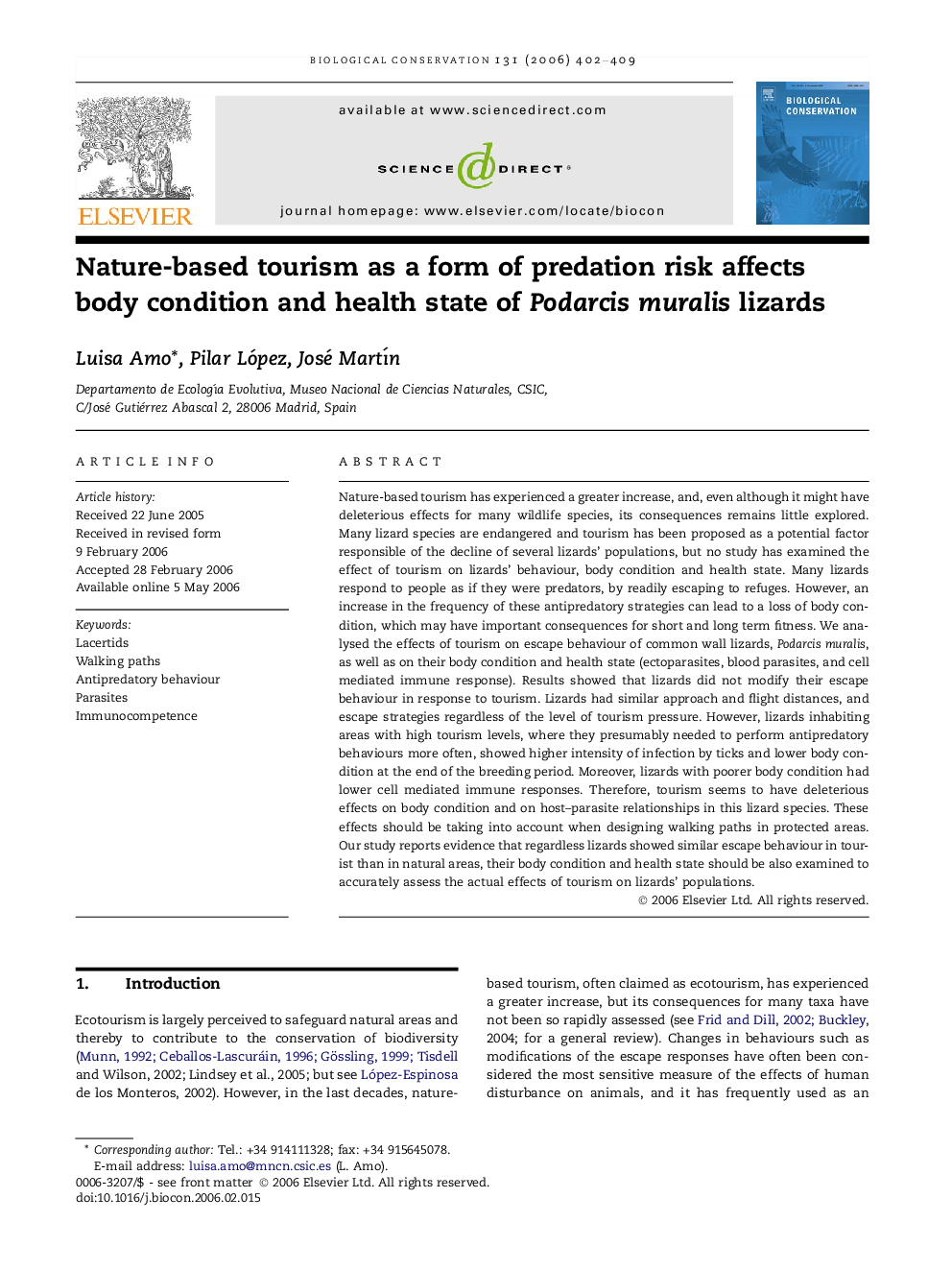| Article ID | Journal | Published Year | Pages | File Type |
|---|---|---|---|---|
| 4387462 | Biological Conservation | 2006 | 8 Pages |
Abstract
Nature-based tourism has experienced a greater increase, and, even although it might have deleterious effects for many wildlife species, its consequences remains little explored. Many lizard species are endangered and tourism has been proposed as a potential factor responsible of the decline of several lizards' populations, but no study has examined the effect of tourism on lizards' behaviour, body condition and health state. Many lizards respond to people as if they were predators, by readily escaping to refuges. However, an increase in the frequency of these antipredatory strategies can lead to a loss of body condition, which may have important consequences for short and long term fitness. We analysed the effects of tourism on escape behaviour of common wall lizards, Podarcis muralis, as well as on their body condition and health state (ectoparasites, blood parasites, and cell mediated immune response). Results showed that lizards did not modify their escape behaviour in response to tourism. Lizards had similar approach and flight distances, and escape strategies regardless of the level of tourism pressure. However, lizards inhabiting areas with high tourism levels, where they presumably needed to perform antipredatory behaviours more often, showed higher intensity of infection by ticks and lower body condition at the end of the breeding period. Moreover, lizards with poorer body condition had lower cell mediated immune responses. Therefore, tourism seems to have deleterious effects on body condition and on host-parasite relationships in this lizard species. These effects should be taking into account when designing walking paths in protected areas. Our study reports evidence that regardless lizards showed similar escape behaviour in tourist than in natural areas, their body condition and health state should be also examined to accurately assess the actual effects of tourism on lizards' populations.
Related Topics
Life Sciences
Agricultural and Biological Sciences
Ecology, Evolution, Behavior and Systematics
Authors
Luisa Amo, Pilar López, José Martı´n,
